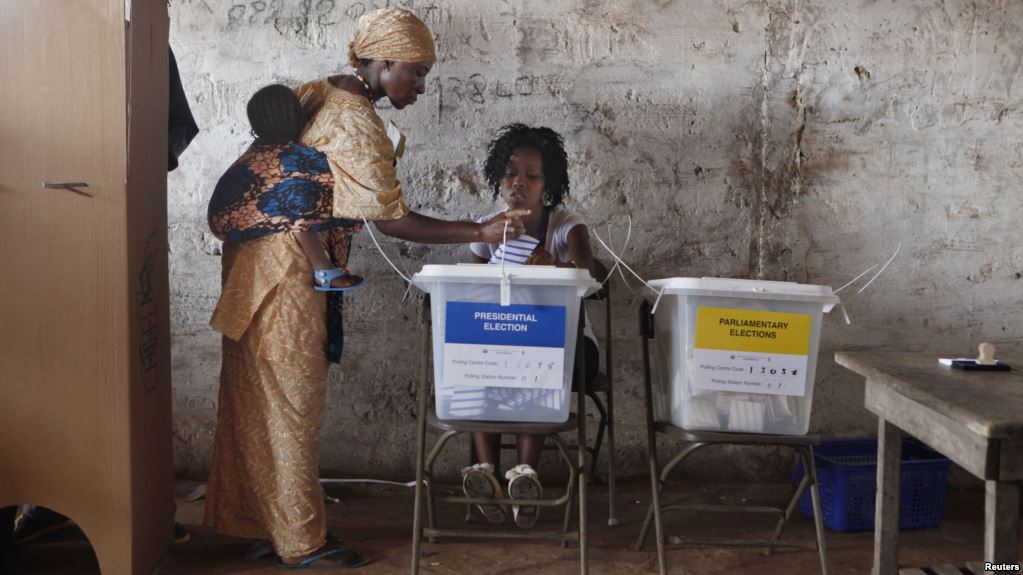
#SierraLeoneDecides: Police, civil society call for peace during & after elections

Sierra Leoneans have been urged to remain calm during and after the upcoming elections.
According to a local publication, awoko.org, the Commonwealth Scholarships, ECOWAS and civil society members across the country have echoed calls that have been made by the police, elections management board and political party leaders for peaceful elections and acceptance of its outcome.
The 2018 general election has been considered to be the most competitive since multiparty democracy was introduced in 1996 because it is the first time for more than two candidates to have real chances of winning and for the country to have a more diversified parliament.
The Commonwealth Alumni Association of Sierra Leone has in a statement recognized the benefits of peaceful, transparent, free and fair elections in a democratic state reminding the citizens of how elections in other African countries have been marred by violence.
The Economic Committee of West African States (ECOWAS) has engaged the country Inter-Religious Council members on peace and acceptance messages of outcome of elections with a special focus on preventive diplomacy, management of conflicts, fair electoral justice, conflict resolutions, among other areas in a bid to be able to engage their congregations.
The political landscape
Over three million people are expected to make the choice between the ruling All People’s Congress (APC) party’s candidate Samura Kamara and Julius Maada Bio of the main opposition Sierra Leone Peoples Party (SLPP) as well as a new entrant into the field, Kandeh Kolleh Yumkella, the former head of the United Nations Industrial Development Organization (UNIDO).
There is also another entrant in the 16 horse race, the Coalition for Change (C4C) who have former vice president Samuel Sam-Sumana leading charge.
The National Electoral Commission (NEC) has said 446 elections will be held for local council positions, including mayoral contests in five cities: Freetown, Makeni, Kenema, Bo and Kono.
Over 3 million registered voters will also vote directly for the 132 seats reserved for ordinary members of parliament.
The winner of this election must garner at least 55 per cent of the total vote to avoid a runoff which analysts are suggesting is unlikely in this poll as the APC and SLPP are neck-to-neck in their reach.
Impact of the Presidential Debate

This election continued to mark milestones for the West African nation after it became the first ever where several key issues were discussed in a live television debate. Six of the 16 candidates faced off in the widely watched debate on February 15.
Issues affecting Sierra Leoneans including unemployment, lack of water and electricity, fighting corruption were discussed with many citizens of the country considering the debate a success.
Credible poll
The National Electoral Commission has vowed to conduct a credible poll with the public also exuding confidence in the team led by Mohamed M.N Conteh and four other commissioners.
The commission has put in place measures that will ensure the vote is done efficiently by putting a number of measures in place including voters identification, braille option for the visually impaired as well as making sure that all polling centres are disability friendly.
The NEC and the police have advised people to leave the polling stations after casting their ballots and are free to return to observe vote counting and results declaration.
As polls open at 7am on Wednesday morning, Sierra Leoneans will be hoping their voices will be heard through the ballot box.
Tallying and declaration of results will be done immediately after poll centres close at 6pm.






